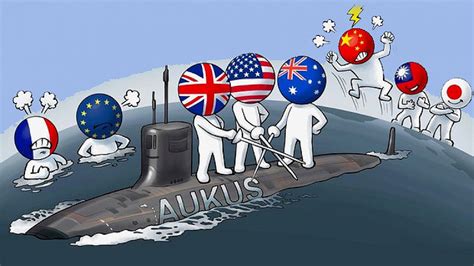The ongoing conversations about the United States possibly exempting Australia, the United Kingdom, and Canada (AUKUS nations) from the International Traffic in Arms Regulations (ITAR) are more than just regulatory tweaks. They symbolize a deeper recalibration of international military and strategic alignments. This potential change highlights a strategic pivot towards strengthening ties with key allies in the face of evolving global threats and power struggles, particularly in the Asia-Pacific region.
At the heart of ITAR is the control over the export of defense-related articles and services from the U.S., a regulation that has tightly governed international defense partnerships and technology sharing. The relaxation of these regulations for AUKUS nations could significantly alter defense collaborations, enhancing their technological capabilities and strategic autonomy. It is crucial to recognize how this shift could affect global defense landscapes, potentially intensifying the arms race and altering the balance of military power, especially in regions like the Indo-Pacific.
Critics of this potential exemption raise concerns about the long-term implications for global stability. The historical context of military alliances and their outcomes highlight potential risks and unintended consequences. For instance, enhanced military capabilities can sometimes escalate conflicts rather than deter them. The strategic calculations that lead to such exemptions are complex and interwoven with considerations about the future roles of these nations in a shifting global order where power dynamics are increasingly fluid.
Supporters argue that in an era where geopolitical tensions continue to mount, particularly with China’s assertive postures in the Indo-Pacific, bolstering the military capabilities of allies through regulatory reliefs such as the ITAR exemption is a strategic necessity. This is not just about enhancing military strength, but also about making a geopolitical statement. The U.S. appears to be reinforcing its commitment to AUKUS nations, signaling a closer alignment and potential counterbalance to rising threats.
However, changing these regulations does not occur in a vacuum. It intersects with broader issues like technology transfer, sovereign capabilities, and the global arms trade dynamic. There are implications for global arms control frameworks and non-proliferation treaties. How the U.S. navigates this while maintaining international norms and ensuring that these changes do not lead to escalated tensions or arms races will be telling of its diplomatic finesse.
In addition to military and strategic implications, there are potential economic impacts to consider. The defense industry, technology sharing, and R&D collaborations could see substantial growth. For the AUKUS nations, this could mean not just enhanced military capabilities but also significant economic opportunities. As global power equations continue to shift, these nations could emerge as more pivotal players on the world stage, with technological advancements spearheading their strategic positions. This strategic repositioning, while potentially beneficial in terms of deterrence capabilities, calls for a careful analysis of the long-term global impacts it might carry.


Leave a Reply